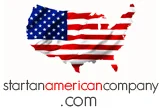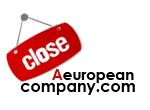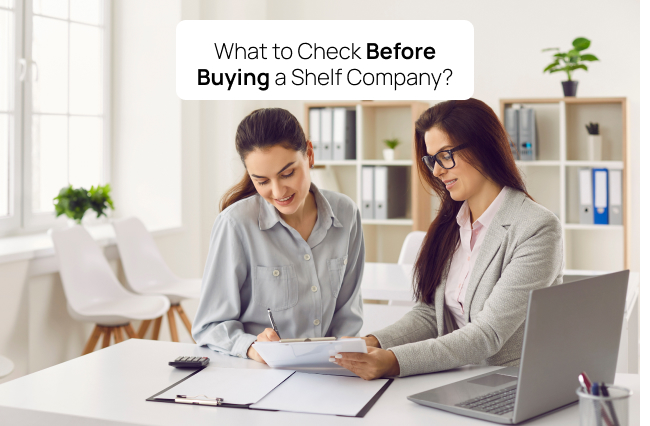In the fast-paced world of business, time is often equivalent to opportunity. Entrepreneurs and businesses seeking a swift market entry or a head start in credibility are increasingly turning to shelf companies, pre-registered legal entities with no prior operations. These entities, also called aged or ready-made companies, can significantly reduce the red tape typically associated with business registration.
But while the benefits are tempting, not all shelf companies are equal. Without proper due diligence, what seems like a shortcut could lead to compliance nightmares, banking rejections, or even legal liabilities. This article provides a comprehensive checklist and insights to help you verify any ready-made company before making a purchase.
Why Buy a Shelf Company in the First Place?
Shelf companies have grown in popularity for several practical reasons. Here’s why:
Speed to Market
Acquire a legally registered business ready to trade in hours, not weeks. Shelf companies eliminate waiting times for incorporation certificates and legal setups. Entrepreneurs gain immediate access to contracts, licenses, and market opportunities.
Pre-established Incorporation Date
An older incorporation date often signals credibility to banks, clients, and regulatory authorities. Age helps when applying for payment processing, loans, or government contracts. It also enhances your business profile on official registries.
Banking and Credit Benefits
Financial institutions prefer dealing with entities that have been in existence for more than a few months. Shelf companies can expedite credit applications due to established timelines. Aged profiles may meet minimum age requirements for specific credit lines or fintech platforms.
Jurisdictional Benefits
In certain regions, only companies with a proven track record of operation are eligible for permits or government contracts. Some countries offer preferential tax or regulatory treatment to long-standing businesses. Jurisdictional age can also improve relationships with local partners and vendors. Industries like e-commerce, fintech, and cross-border trade find aged companies especially useful when dealing with compliance-heavy operations or tight go-to-market timelines.
The Importance of Due Diligence
A shelf company is more than just paperwork; it’s a business asset. However, unlike a new company you form yourself, you’re relying on someone else’s preparation and maintenance. Failure to verify a ready-made company can result in:
- Bank account rejections
- Hidden debts or legal obligations
- Fines for non-compliance
- Reputation damage
As such, a well-defined due diligence checklist for a shelf company is not optional; it’s critical. Treat this process as seriously as acquiring an operating business. Due diligence protects you from financial loss and compliance issues. Always confirm authenticity before taking ownership.
What to Check Before Buying a Shelf Company?
Here’s your complete verification checklist before committing to purchase:
Company Age and Incorporation Date
The age of the shelf company should suit your intended purpose:
- Minimum 6 months for drop shipping and advertising approvals
- 1-3 years for high-risk banking jurisdictions or applying for business loans
- 3+ years if targeting government tenders or enterprise-level clients
Ask for the original Certificate of Incorporation and verify it via the jurisdiction’s company registry. Ensure the date is authentic and can be verified through public records. Older companies often come with a higher price tag, so ensure it matches your needs.
Jurisdiction and Legal Structure
Not all locations offer the same advantages. You need to align the company’s jurisdiction with your market goals:
- Ireland, Estonia, UK: Great for EU access
- UAE or Dubai: Tax benefits and investor residency
- Singapore, Hong Kong: Asian markets and fintech operations
Confirm the company’s legal structure, LLC, PLC, GmbH, or S.A., and ensure it matches your plans. For instance, a Limited Liability Company might be well-suited for small businesses, while a Public Limited Company may be required for certain types of financial licensing. Some jurisdictions require resident directors or office addresses. Legal structures can also impact tax filing requirements and business operations.
Corporate Compliance History
Even a dormant company must fulfil annual obligations:
- Filing annual returns
- Paying registration or renewal fees
- Holding AGMs (Annual General Meetings)
Request a compliance report or obtain one from the local registrar to verify if the entity is in good standing. Late filings may come with financial penalties or even deregistration. Confirm there are no outstanding fees or missed filings. Companies with lapses in compliance could be blacklisted.
Clean Legal and Financial Background
One of the most critical steps when conducting due diligence on a shelf company is checking its trading history:
- Has it ever been used?
- Does it have outstanding debts or liabilities?
- Has it been involved in any lawsuits or been subject to any settlements?
Ask for:
- Non-trading declarations
- Tax clearance certificates
- Legal opinions (if operating in high-risk sectors)
Use external verification services if the provider is not able to provide documents upfront. Check court databases or government portals for legal records. A truly dormant company should have no banking activity or liabilities.
Included Documentation
A legitimate, ready-made company should come with a complete documentation pack. At a minimum:
- Certificate of Incorporation
- Memorandum & Articles of Association (MOA/AOA)
- Shareholder resolutions
- Company registers and share certificates
- Optional but valuable: VAT registration, bank account, and trade licenses
This paperwork is crucial for onboarding with payment processors, tax authorities, and banking institutions. Ensure documents are notarised and up to date. In some countries, translations may be necessary for cross-border use.
Name and Branding Suitability
Shelf companies come with pre-assigned names, which may not align with your business:
- Do you intend to change your name?
- Will customers or partners take the name seriously?
- Is it trademarked or potentially confusing?
Changing the name involves extra cost and documentation, especially if the jurisdiction has strict naming regulations. A poor name choice could impact digital branding or customer trust. Always run a trademark search before purchase.
Registered Office and Local Requirements
Every company must have a legally registered address in its jurisdiction. Clarify:
- Is a registered office included in the package?
- Is there a mail forwarding or virtual office service?
- Do you need a local nominee for a director or a Power of Attorney?
This is particularly important in countries with economic substance regulations or where foreign directors are required to meet in-country requirements. A local presence may be required for licensing or tax compliance purposes. Be sure to budget for office renewals or representation fees.
Banking Compatibility
Banking is where many shelf company deals fall apart. Aged companies may appear credible on paper but still fail banking scrutiny.
Ensure the shelf company is:
- KYC-compliant
- Registered in a low-risk jurisdiction
- Includes updated beneficial ownership data
Check whether the provider helps with banking or if the entity has a pre-approved account. Some banks require in-person verification or proof of business activity. Having an aged company does not guarantee instant approval.
Red Flags to Avoid
- Missing or Incomplete Documentation
Any hesitation in sharing company records is a major red flag.
- Suspicious Pricing
If a company is significantly cheaper than average, it could indicate hidden liabilities or fake documentation.
- Previously Used Companies Not Disclosed
A shelf company is only valuable if it has zero prior operations.
- Vague Jurisdictional Claims
Phrases like “European entity” without specifying the country raise compliance and legal red flags.
Working with a Trusted Provider
Your best defence against shady deals is to work with a reputable service provider. Ensure they:
- Offer full transparency
- Provide verifiable documentation before purchase
- Can help with post-sale compliance, such as name changes, bank account setup, or office services
Who Should Consider Buying a Shelf Company?
Shelf companies are not for everyone, but they offer immense value in specific scenarios:
- Fintech start-ups need regulatory approval quickly
- E-commerce sellers seeking merchant account approval
- Investors acquiring new operational companies
- Entrepreneurs expanding into a new country under time pressure
These users benefit from the pre-existing legal structure, fast-track documentation, and credibility of aged entities.
When a New Company Might Be a Better Option
Sometimes, forming a new company from scratch is better:
- You want complete control from Day 1
- You are entering a jurisdiction like the UAE, where Free Zone companies can be formed in a few days.
- You require a highly customized structure not offered by shelf entities.
Conclusion
In conclusion, purchasing a shelf company can be a strategic move for entrepreneurs and businesses looking to accelerate market entry, establish immediate credibility, or simplify expansion into new jurisdictions. However, not all shelf companies are created equal. It’s essential to conduct thorough due diligence, reviewing the company’s age, legal standing, documentation, jurisdiction, and banking compatibility to ensure the entity aligns with your operational goals. Avoid red flags like vague jurisdictional claims, missing paperwork, or unrealistic pricing, and always choose a reputable provider that offers transparency and post-purchase support. By approaching the process with care and professionalism, you can leverage the advantages of a ready-made company while avoiding the pitfalls that often catch buyers off guard. Ultimately, the right shelf company, when properly vetted, can become a powerful asset in your global business journey.





